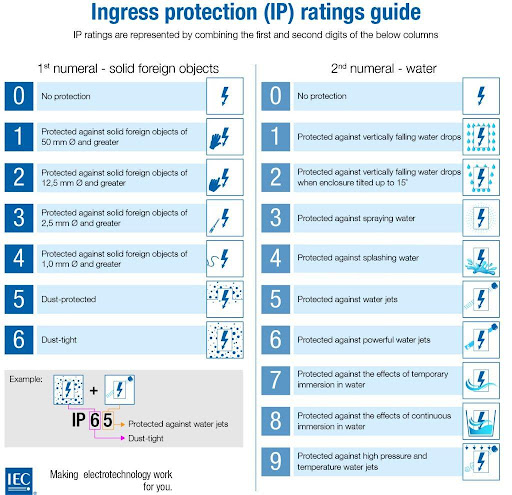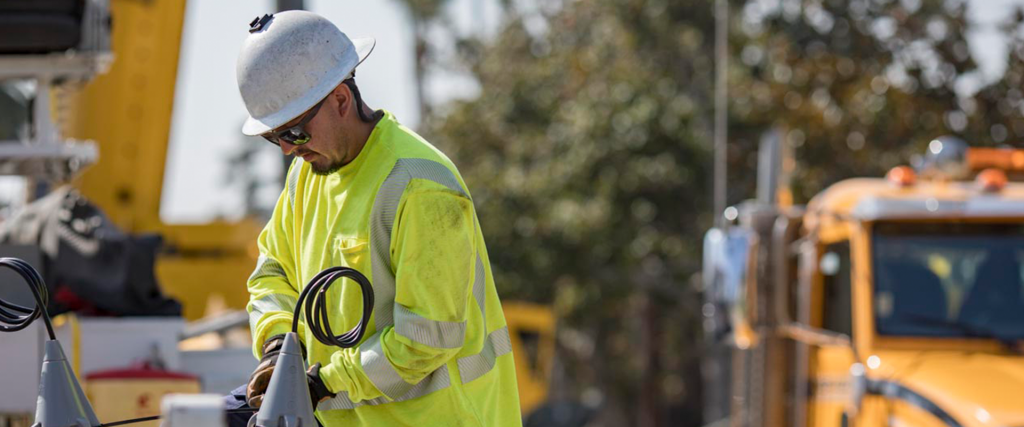So, What Makes “Waterproof” Two-Way Radios Waterproof?
What makes “waterproof” two-way radios waterproof is the materials used to make them and how they are designed. Waterproof two-way radio housings are made of durable non-flexible plastic. These durable housings are designed with rubber seals or sealant at every possible water ingress point. These seals keep virtually all moisture out of the device.
The design and materials of waterproof two-way radios make it all but impossible for moisture to reach the electrical components on the inside of the housing. But should a small amount of moisture get through, all the components on the inside of a waterproof two-way radio are coated with a water-repellant sealant. The sealing is what makes “waterproof” two-way radios waterproof. But are all two-way radios waterproof? If not, how do I make sure MY two-way radio is waterproof?
Check The Ingress Protection (IP) Rating
Phrases like “waterproof radio,” “water-resistant radio,” or “weatherproof radio,” are all kind of sketchy. It’s hard to tell where waterproof leaves off and water-resistant takes over.
For this reason, the International Electrotechnical Commission (IEC) has developed, and continues to update, the IEC 60529 Standard. This standard rates the “resistance of an enclosure” used for electrical products like smartphones, tablets, cameras, and yes, two-way radios against the intrusion of dust and liquids.
The IEC 60529 Standard assigns a numerical Ingress Protection (IP) Rating Guide that describes the protection you can expect from the enclosure surrounding your electronic device. See the chart below for an explanation of the IP Rating Codes.

The IP Code consists of two numbers. The first number refers to protection against solid objects such as dust and dirt. The second number refers to protection against water.
The protection rating for solid objects ranges from 0-6 and the water protection rating ranges from 0-9. The higher the number, the greater the protection. If your two-way radio has an IP67 rating, it is virtually dustproof. In addition, it can be submerged in water up to 1 meter deep for 30 minutes.
Every two-way radio should list an IP Rating in its specifications sheet along with other standards and certifications. For example, check out the IP Rating in the specifications for dust and water intrusion for Motorola’s XPR 7000 Series radios. The XPR Series radios have an IP Rating of IP68. This means that the XPR 7000 Series radios can survive being immersed in 2 meters (6’ 6”) of fresh water for up to 2 hours.
Keep This In Mind Regarding IP Ratings
IP Ratings are extremely useful for rating two-way radios and other electronic devices by the protection they offer from dust and moisture. However, it is important to remember that the IP ratings do not tell the whole story. Listed below are some cautionary truths for you to keep in mind regarding IP Ratings…
IP Ratings Are A Single-Point Assessment:
IP ratings are based on a single-point assessment. IP Ratings only reflect what they are testing for. For example, an IP Rating of IP67 means that a device is protected against moisture in up to 1 meter of fresh water for only 30 minutes. It does not inform you how that same device holds up in salt water for 45 minutes.
IP Ratings Do Not Account for Physical Damage:
Drops and rough handling of a device can degrade or damage the seals or sealant at any ingress point. Damaged seals will not protect against moisture ingress thereby rendering any IP Rating useless.
IP Ratings Do Not Account For Age:
IP Ratings eventually must have an “expiration” date. The rating will not ring true forever. Over time the materials for the seals and sealants will degrade and not offer the same protection as when they were new.
Because of the above limitations, it’s important to consider other certifications, standards, and specifications, in addition to the IP Rating, when choosing a device for a specific application. This is where it becomes a good idea to ask someone with knowledge and experience for help. Consulting with the manufacturer or a professional in the field can provide valuable insights into a device’s suitability for your particular situation.
Consult RCS Communications
For reliable wireless communications, RCS Communications is unmatched. RCS Communications is the leader in wireless solutions for organizations and public service agencies throughout Kentucky and Indiana.

